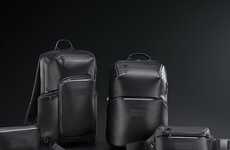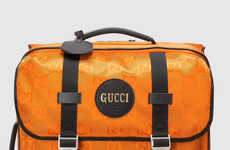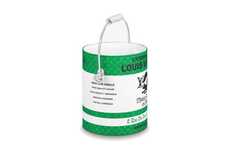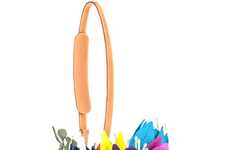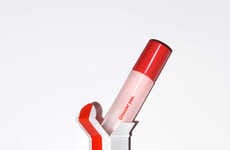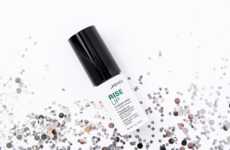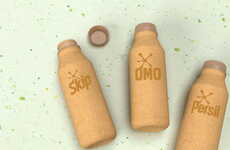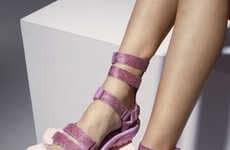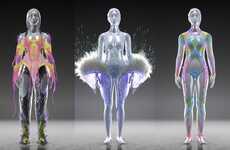
The Louis Vuitton 'Felt Line' is Made with Eco-Responsible Materials
Michael Hemsworth — June 22, 2021 — Eco
References: louisvuitton & hypebeast
The Louis Vuitton 'Felt Line' is a new range of accessories from the fashion house that aim to deliver impressive style that doesn't come at the expense of the environment. The bags come in three styles to choose from including the Keepall, Keepall XS and the Soft Trunk, which are each crafted using recycled wool-based jacquard, organic cotton and 100% recycled polyester. Each of the pieces maintain a varying appearance that will make them appear different across the surface as well as from piece to piece.
Global Head of Sustainability Christelle Capdupuy spoke on the new Louis Vuitton 'Felt Line' saying, "We also target the use of existing stocks of raw materials, in order to preserve natural resources. This is often done by Virgil Abloh in his collections. Today, we’re furthering our commitments by extending our sustainable development approach to all of raw materials with the goal of reaching 100 percent responsibly sourced raw materials by 2025.”
Image Credit: Louis Vuitton
Global Head of Sustainability Christelle Capdupuy spoke on the new Louis Vuitton 'Felt Line' saying, "We also target the use of existing stocks of raw materials, in order to preserve natural resources. This is often done by Virgil Abloh in his collections. Today, we’re furthering our commitments by extending our sustainable development approach to all of raw materials with the goal of reaching 100 percent responsibly sourced raw materials by 2025.”
Image Credit: Louis Vuitton
Trend Themes
1. Eco-responsible Fashion - As consumers become more environmentally conscious, there is a growing trend in the fashion industry to use sustainable and recycled materials for their products, creating opportunities for brands to incorporate eco-responsible practices into their designs.
2. Circular Economy - The Louis Vuitton 'Felt Line' showcases the potential of the circular economy in the fashion industry, using recycled materials to create new products and reducing waste and environmental impact.
3. Transparency and Traceability - Consumers are demanding more transparency and traceability in the fashion supply chain, leading to an opportunity for brands to implement responsible sourcing practices and provide information on the materials and production processes used in their products.
Industry Implications
1. Fashion - Fashion brands can incorporate sustainable and recycled materials into their products to meet the growing demand for eco-responsible fashion choices.
2. Textile Manufacturing - Textile manufacturers can explore the use of recycled materials and implement circular economy practices in their supply chain to create more environmentally friendly products.
3. Retail - Retail companies can cater to consumers' demand for transparency and traceability in the fashion industry by partnering with brands that prioritize responsible sourcing and production processes.
5.6
Score
Popularity
Activity
Freshness



